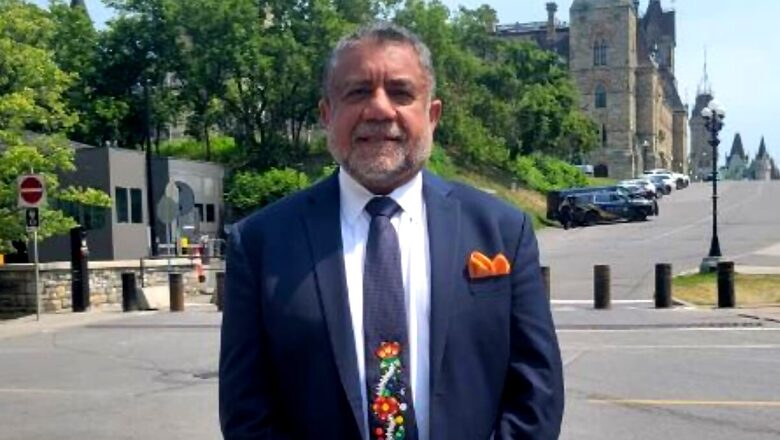
views
There are certain Indian intelligence inputs, which point to Canadian MP and Justin Trudeau’s close aide Sukh Dhaliwal’s alleged support to dead pro-Khalistani leader Hardeep Singh Nijjar in establishing his network in Canada.
According to intelligence sources, Nijjar, chief of banned Khalistan Tiger Force (KTF), was on the no-fly list but Dhaliwal managed to arrange his Permanent Residency in Canada. It should be noted that Dhaliwal has been appointed Chairperson of Immigration Committee.
According to sources, this reward has come for him for his enormous Sikh support base and his proximity to ISI.
Nijjar was staying in a Gurdwara in Dhaliwal’s constituency of Surrey, where he was shot by assailants in broad daylight on June 18.
Intelligence sources say Nijjar was operating an immigration racket in which people were brought to Canada and involved in nefarious activities. Nijjar was allegedly backed by Dhaliwal, and the money earned through the racket was distributed between the two.
Sources say Dhaliwal, Pakistan’s Inter-Services Intelligence (ISI) and Nijjar links are clearly visible because the Liberal Party MP’s posters all over during his visit to Lahore around four months ago. He was accorded a grand welcome. It is here that the conspiracy was hatched to give a fillip to the diminishing rankings of both Dhaliwal and Trudeau.
News18 has already reported that Dhaliwal was the mastermind behind the Nijjar’s controversy. Dhaliwal floated the idea to Trudeau when he returned from Pakistan, they added, and they decided to use Nijjar’s death to gain the sympathy of Khalistanis.
This is not the first time Dhaliwal’s name has emerged in connection with his anti-India stance. In 2010, Liberal MPs Dhaliwal and Andrew Kania introduced a petition in the House of Commons asking Ottawa to consider the 1984 Sikh riots in India as an act of genocide.
Revealing his experience in Parliament this month, Dhaliwal said he was refused an Indian visa for speaking out against what he called “excesses against Sikhs” in India, which he went on to describe “a so-called democracy.” In light of this, he called on lawmakers from across Canada’s political spectrum, including Conservatives, Liberals, and the NDP, to denounce what he claims is Indian government’s intimidation.
He was supported by NDP’s Jagmeet Singh who said India denied him a visa in 2013 when he was a member of Ontario’s provincial legislature. Singh added that the Indian government appeared dissatisfied with his attempts to obtain justice for the victims of the November 1984 anti-Sikh riots.

















Comments
0 comment